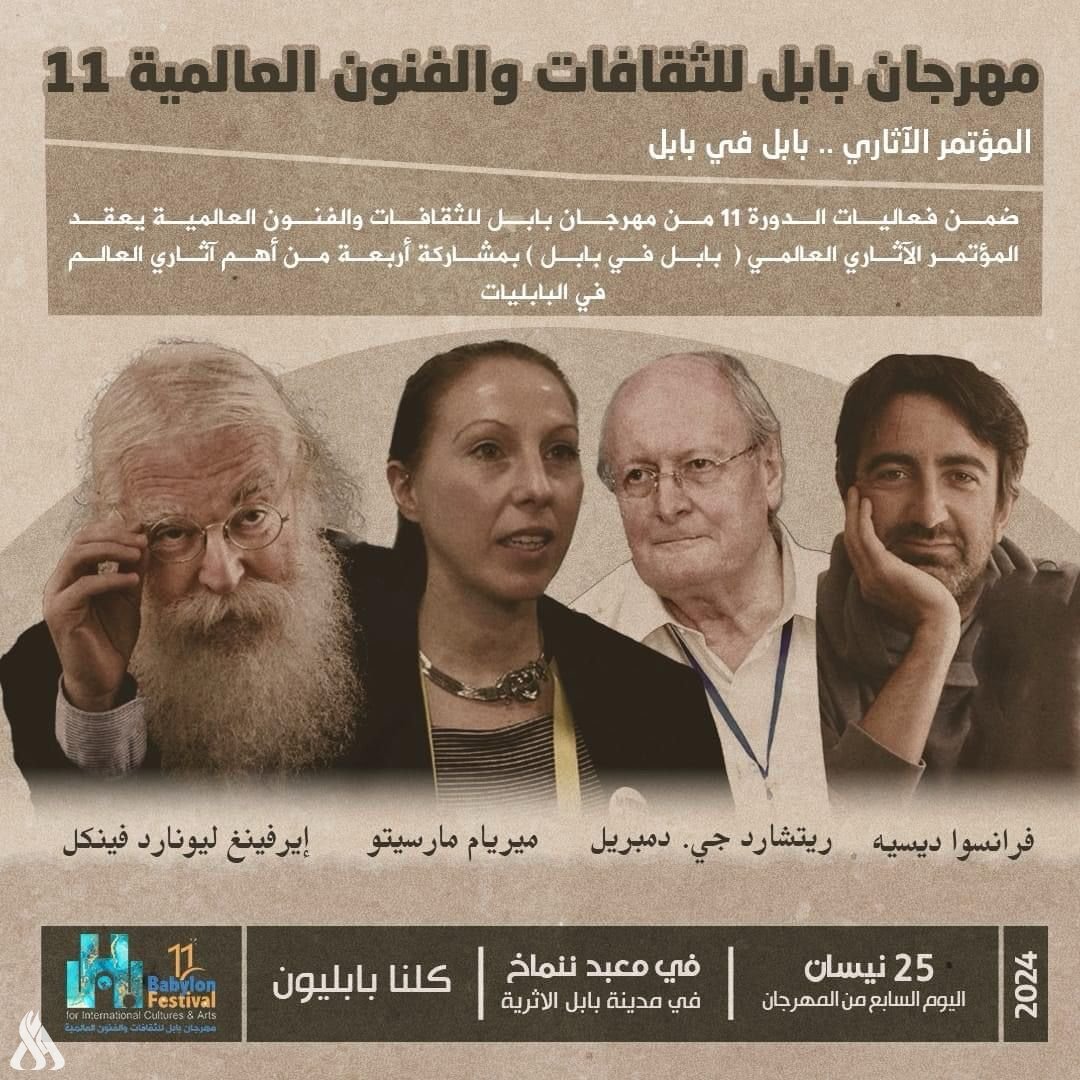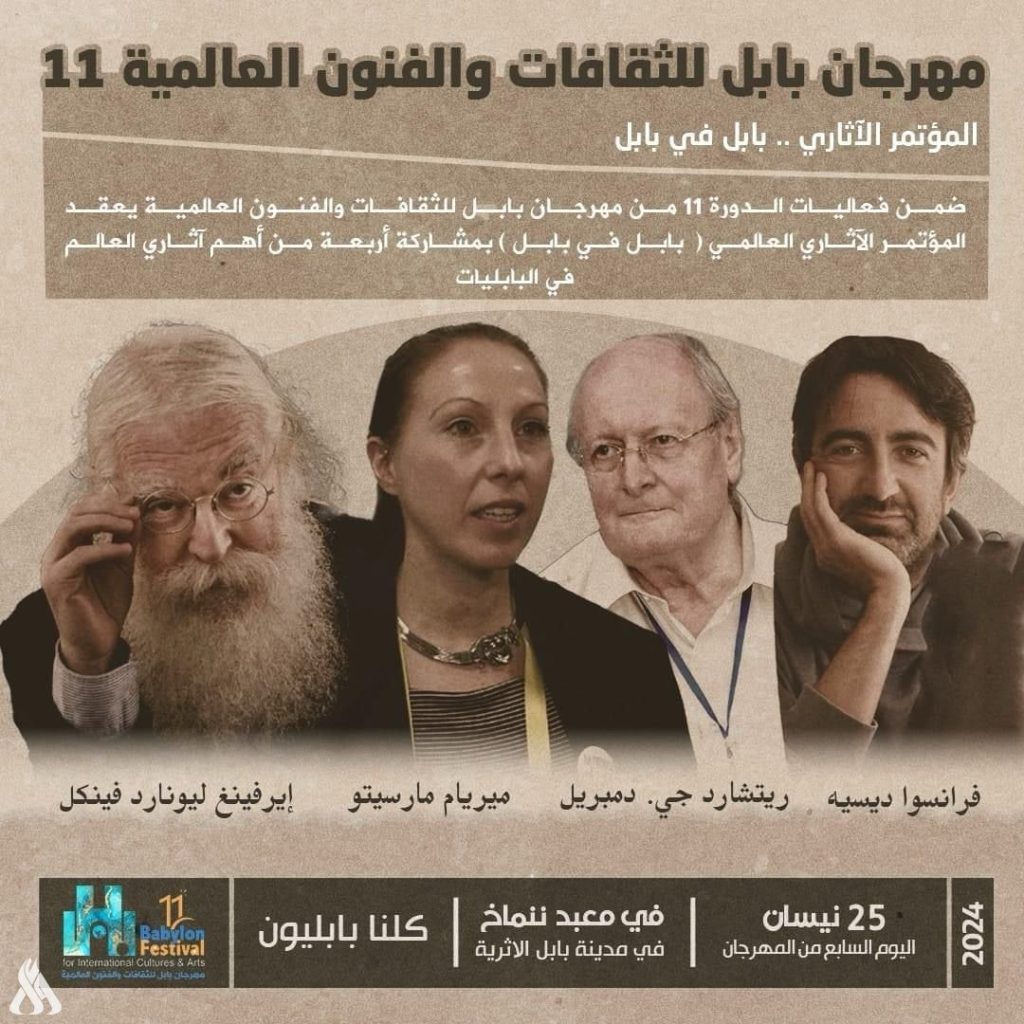
Baghdad – IA
The ancient city of Babylon intends to host the Babylon Festival for World Cultures and Arts in its 11th session, under the patronage of Prime Minister Muhammad Shiaa al-Sudani and with the participation of four of the world’s most important archaeologists.
To receive more news, subscribe to our channel on Telegram
The head of the Babylon Festival for World Cultures and Arts, Ali Al-Shallah, told the Iraqi News Agency (INA), “As part of the many activities in literature, art, and thought for the 11th session of the Babylon Festival for World Cultures and Arts, the World Archaeological Conference (Babylon in Babylon) will be held with the participation of four of the world’s most important archaeologists in the Babylonians.” They are Professor Irving Leonard Finkel, Professor Miriam Marcetto, Professor François Desaix, and Professor Richard J. Dumbrell, on the seventh day of the festival, April 25, 2024, in the Temple of Ninmakh in the ancient city of Babylon.
Participants from the Sorbonne, the Louvre Museums and London include Professor Irving Leonard Finkel, born in 1951, an English philologist and Assyriology. He is Assistant Curator of Ancient Mesopotamian Languages and Cultures Manuscripts in the Middle East Department at the British Museum, where he specializes in cuneiform inscriptions on clay tablets from ancient Mesopotamia.
Professor Myriam Marcetto: a music historian, archaeologist, and pianist passionate about arts and culture. She holds a doctorate in music history and musicology, and is an art historian and archaeologist at (Royal Holloway College, University of London – Paris IV Sorbonne). She spent a post-doctoral year at the British Museum in London to enhance her knowledge of ancient Near Eastern music, and also has extensive academic training in cultural enterprise.
As for Professor François Desaix, he was born in 1982. He is a French archaeologist and specialist in the affairs of the East in the period from the Neolithic to the Bronze Age.
Between 2017 and 2020, he was the first to decipher the Elamite linear language, which is an ancient writing used in Iran in the period between 2300 and 1900 BC, and it is a copy of a language that is neither Indo-European nor Semitic.
While Professor Richard J. Dumbrill: Born in Épernay in northeastern France in 1947, he is a British/French archaeological musicologist and composer. He is also a relativist musicologist, as he opposes theories of totalitarianism and Westernization in his field.
Dumbrell studied archaeological musicology in the ancient Near East, especially the interpretation of music theory cuneiform texts written in the Sumerian and Babylonian languages.


